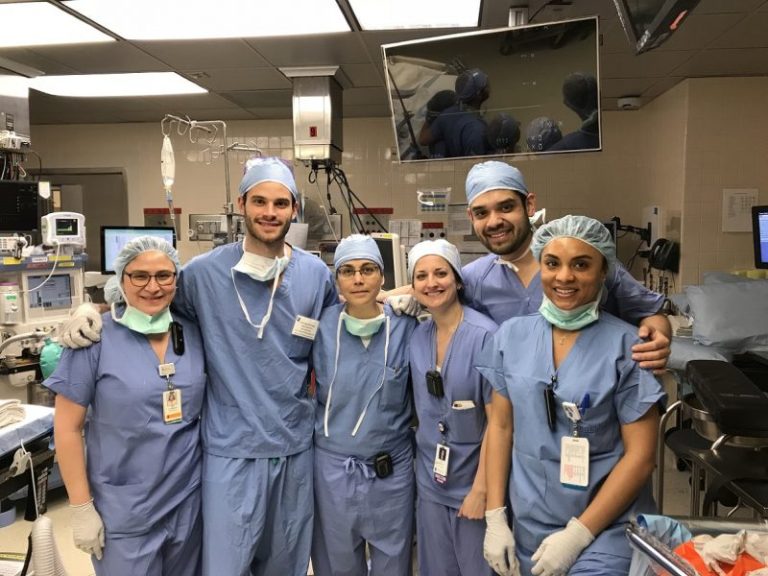28 de abril 2020

News About Sheynnis Palacios Not Covered by Media Operating in Nicaragua

PUBLICIDAD 1M
PUBLICIDAD 4D
PUBLICIDAD 5D
Marcela del Carmen Amaya, from Nicaragua, and currently Chief Medical Officer for the Massachusetts is not convinced of the benefits of interferon

Marcela del Carmen Amaya
Beginning in early January, Nicaraguan surgeon Marcela del Carmen Amaya put to one side her medical specialty of gynecologic oncology in order to dedicate herself full time to COVID-19 in her role as Chief Medical Officer for the Massachusetts General Physicians Organization (MGPO) at Massachusetts General Hospital, ranked among the five best hospitals in the United States.
Mass General is one of the largest hospitals affiliated with the prestigious Harvard Medical School. Its on-site staff, which numbers 23,000, has been reduced to just 2,000, dedicated exclusively to clinical services. “The rest are now working from home,” said Marcela del Carmen Amaya in an interview with CONFIDENCIAL’s weekly program, Esta Noche, transmitted through YouTube and Facebook Live.
The hospital’s measures follow the state-wide directive of Massachusetts governor, Charlie Baker, ordering non-essential businesses to close and asking all non-essential personnel to maintain social isolation and stay at home. Similar measures have been instituted in a number of other states in the US.
According to this Nicaraguan doctor, the only weapon we have at the moment to fight the pandemic, in the absence of a treatment or vaccine, is to “isolate the public early on and to insure that the isolation is rigorously maintained”.
In Nicaragua, the government has placed its bet on Interferon Alpha-2B produced in Cuba to fight the coronavirus. However, Dr. Marcela del Carmen Amaya has little confidence in this pharmaceutical as studies “have been primarily in vitro”, and its use in treating COVID-19 has been “limited”; although the doctor recognizes that it has “much potential”.
Dr. Marcela del Carmen Amaya’s family emigrated from Nicaragua to the US in 1979. Among her numerous achievements is that of becoming the first Latina woman to rise to the academic rank of professor in the fields of gynecologic oncology, gynecology, obstetrics and surgery at Harvard Medical School.
What has been your hospital role and responsibilities in terms of the pandemic?
Marcela del Carmen Amaya: During the last 3 months I’ve had to focus on managing and preparing the response to COVID-19, mainly by establishing clinical programs to provide support to patients being admitted to the hospital.
I’ve created clinics within our system for carrying out COVID-19 testing; as well as deciding which patients can remain at home and which will have to be admitted to the hospital. I’ve had to organize the labor force, mainly in clinical services, including doctors, nurses and therapists who are focused on the respiratory and therapy needs of patients on ventilators.
I understand that you oversee at least 3,200 doctors. What protection protocol is being used by the doctors and allied health personnel?
We’ve used the protocols of the Centers for Disease Control and Prevention (CDC) in Atlanta. This has changed depending on our having more or less access to resources. It wasn’t until this week that we gained access to N-95 masks which provide greater protection from the virus.
Prior to this week, our team had surgical masks for protection because priority was given to the doctors in clinical services with the highest risk of contagion, for example in operating rooms and intensive care units. Those doctors and teams have always had access to the N-95 masks.
We’ve reduced the work force from 23,000 employees down to a little less than 2,000, to support just the hospital’s clinical operations.
When we come in contact with patients with COVID-19, we use N-95 masks, disposable gowns and plastic face shields to protect our eyes and the rest of the face, which is a high-risk area.
How many patients do you test each day for the presence of COVID-19?
We carry out between 500 and 600 tests per day just in the hospital alone, based on patients who call the hospital’s dedicated line. Individuals can call with their symptoms or they can come in person to the clinics we’ve established as a response to the crisis. If they present with symptoms that are of concern, then we test them.
As our testing supplies have increased, we’ve broadened the indications for testing. For example, starting this Monday, all patients arriving at labor and delivery will be tested, whether they have symptoms or not.
What is the protocol for dealing with suspected cases of COVID-19?
Once the patient’s status is confirmed and is to be admitted to the hospital, they are transferred to a different area. We’ve isolated certain elevators and access routes within the hospital to try to limit contagion of others within the hospital.
We’ve somewhat remodeled the hospital in order to accommodate these patients on different floors, whether it be in intensive care or in the regular wards. We’ve created twelve different intensive care units, and another ten floors of the hospital are reserved for caring for these patients.
This morning (Tuesday, April 21st) we had a little over 250 confirmed COVID-19 patients, of which 162 are in intensive care, the majority on mechanical ventilators.
Once the patient is admitted to intensive care because they are moderately or acutely ill, we have different clinical trials that we can apply. Although there are still no approved treatments, we do have clinical trials.
Depending on the patient’s symptoms and clinical presentation, we can apply certain antiviral medications that have been used to treat HIV, and others that have been used to treat ebola.
The Nicaraguan government is betting on Interferon Alph-2B produced in Cuba for combatting coronavirus. Have you used that medication for coronavirus?
No, it isn’t part of our portfolio for clinical trials, due to the fact that this medication has been studied for the most part in vitro, and experience in using it for COVID-19 is limited.
It was used during the Severe Acute Respiratory Syndrome (SARS) epidemic with quite limited results. In terms of COVID-19, the evidence shows that given alone, it doesn’t have as much potential as when given in conjunction with some other retroviral medicines used to treat HIV.
It’s a pharmaceutical with much potential but I think the pre-clinical evidence is still not as advanced as some other medicines.
In Nicaragua, the Ministry of Health asserts that they are carrying out between 100 and 200 tests daily on a national level, a number that is well under the testing practices of other Central American countries. What is your opinion on the size of that test sample?
Based on the size of the Nicaraguan population, it’s a very low number. We (at Mass General) had that challenge in the beginning, when we didn’t have enough resources to test all patients with symptoms.
The ideal practice would be to test the entire population because we know that there are many people who have the virus but have no symptoms.
And in addition to testing, contact tracing should be carried out on all contacts of those who test positive in order to contain the spread of the virus.
What do you think of the Nicaraguan government’s decision to not suspend classes nor public sector activities because of the pandemic?
Without having much detailed information on the situation in Nicaragua, I can tell you what our position has been within the health system of the hospital and the Commonwealth of Massachusetts. Here, classes were suspended in universities and public and private schools beginning in the first week of March, and at the moment we have a quarantine (in Boston) which prohibits us from being out between 9 pm and 6 am.
I believe that the only weapon you have to fight the pandemic, in the absence of a proven treatment, is to isolate the populace and that the isolation be followed rigorously.
Can civil society fill the void in the public sector in terms of disease prevention?
Definitely. It’s a responsibility we all share. I believe that in addition to all the effort we put forth as medical professionals, there must be a partnership (social partnership or cooperative effort) with the public sector and with civil society.
What we medical professionals can do is support these patients and try to manage this illness once it has been acquired, but the most useful tool we have is prevention, avoiding contagion.
Right now, in the absence of a vaccine, the only weapon we have is social isolation and trying to employ hygiene measures as much as possible.
Archivado como:
PUBLICIDAD 3M
Confidencial es un diario digital nicaragüense, de formato multimedia, fundado por Carlos F. Chamorro en junio de 1996.
PUBLICIDAD 3D